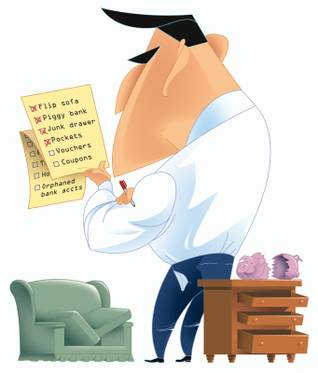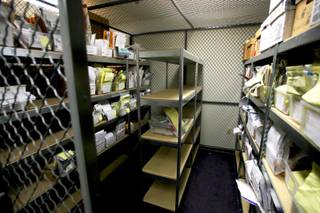Thursday, April 14, 2011 | 2:01 a.m.

Kate Marshall
Sun archives
- State holding checks for big names (2-6-2009)
- The check’s not in the mail (9-9-2007)
- Unclaimed property feeds state coffers at growing rate (12-4-2006)
If you’ve lost a retail gift card, forgotten about a bank account or didn’t claim or redeem a rebate check, state government is ready to pounce on it.
The money is still yours but until you claim it, it’s open season for politicians who want to spend it on projects that otherwise don’t stand a chance in Carson City of getting funded.
Since 1981, the state has collected $490 million in “unclaimed property,” according to the Nevada treasurer’s office, which safeguards that money.
Each year, about 20 to 30 percent of that money has been returned to its owners. The rest is an attractive treasure chest for lawmakers to tap: It doesn’t involve a politically unpopular vote to raise taxes or cuts in programs that would upset constituents. The people whose money is being used don’t even know it.
The money spills into the state’s general fund to pay for things such as schools, universities and health care.
Gov. Brian Sandoval wants $10 million of it to help recruit businesses to move to Nevada.
Sandoval’s plan has support from the highest level, including from Senate Majority Leader Steven Horsford and Assembly Speaker John Oceguera, both Democrats.
And why not? It could be your money but you’re not raising a stink.
Over the past 20 years, Nevada, like other states, has become more aggressive in pursuing this money from businesses. It ranges from safety deposit boxes without heirs, final paychecks left sitting with the last employers, rebates never redeemed and unused gift certificates.
Retailers are required by law to notify the state of unused rebates and gift cards. Retailers get to keep 40 percent of unredeemed gift cards issued after Oct. 1, 2007, and the state keeps 60 percent when they expire.
The fund started in 1981, and didn’t stir much excitement. By 1999, it had grown to almost $6 million; by 2007, $23 million; then $49 million in 2008, and $66 million last year.
The increase is explained by several factors:
• A large banking center moved here in 2008.
• The state’s population increased.
• Foreclosures, short sales and the ever-increasing transiency of the population have made it harder for businesses to track down those who are owed money.
If you wonder whether you are due money, go to nevadatreasurer.gov.
“First and foremost, our job is to get the money back to the people who own it,” Treasurer Kate Marshall said. “That’s our first mandate, our primary mandate always. Nothing impinges on that.”
But the state has also upped its outreach to small businesses to report unclaimed property itself. Marshall wants to expand a program that encourages business to self-report unclaimed property in exchange for waiving interest and fines. She said it would bring in $12 million a year.
She said the state is safe using the money for one-shot projects.
To fund ongoing projects, “you have to be careful how much of it to use in that regard,” she said.
In good times, the state used its unclaimed property fund to shore up the Millennium Scholarship, the popular program that helped pay for Nevada high schoolers to pursue higher education. It started with a $35 million injection in 2006. And for three years, unclaimed property contributed about $7.6 million to the program.
Then the recession came, and state leaders found the money was a painless way to reduce the budget deficit.
So, on behalf of your fellow Nevadans, thank you for losing that Walmart or Target gift card, even if you don’t feel the pain.



Join the Discussion:
Check this out for a full explanation of our conversion to the LiveFyre commenting system and instructions on how to sign up for an account.
Full comments policy